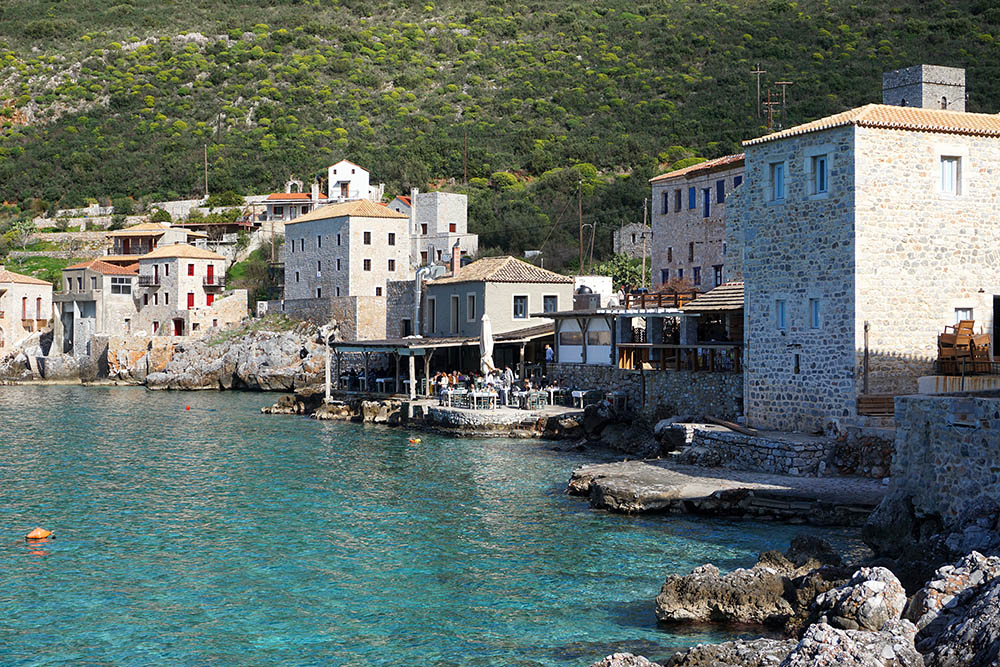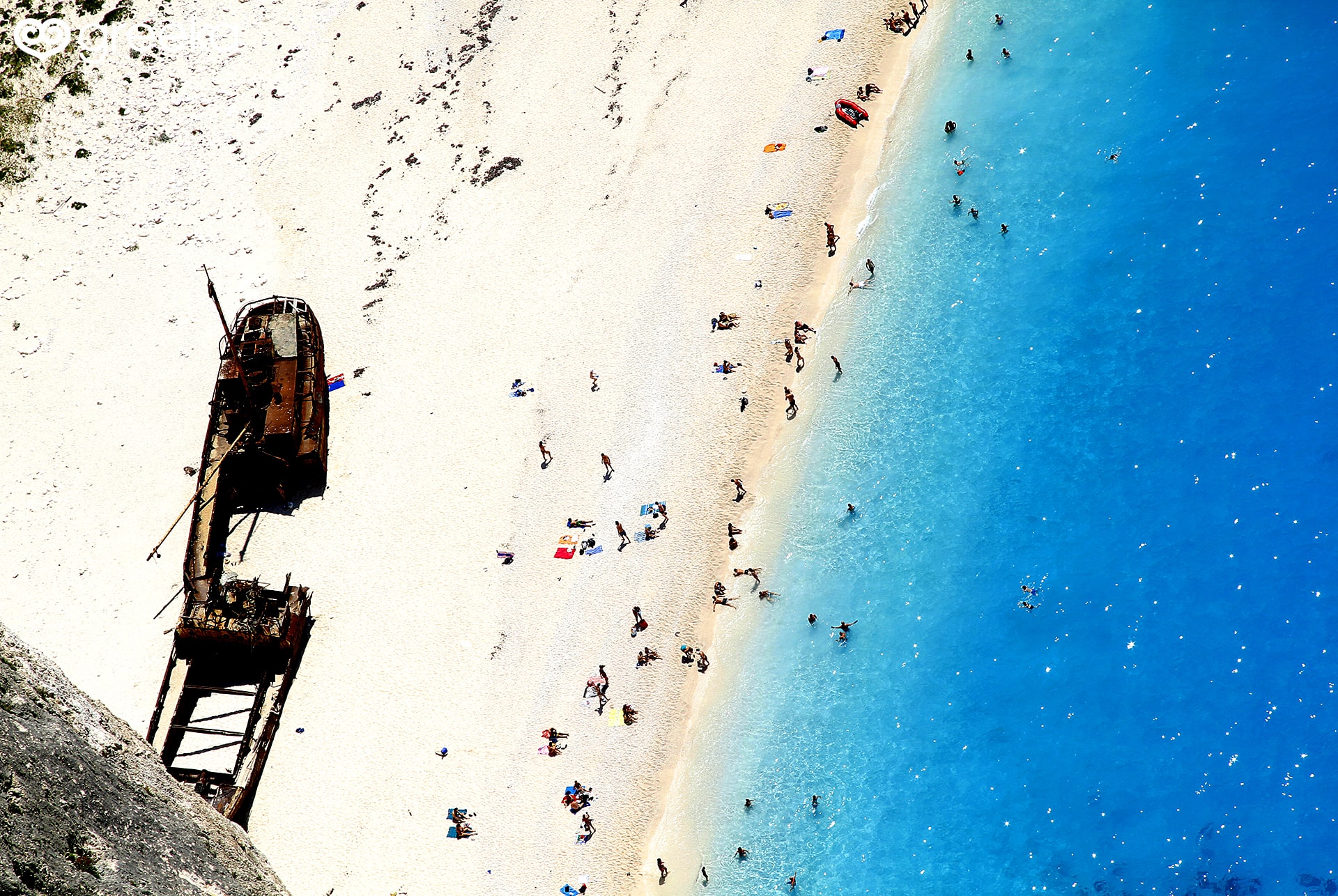By on 06-04-2022
Share this post:
The Orthodox Easter is the most significant holiday in Greece, even more so than Christmas! It is the biggest religion-oriented celebration, with many interesting traditions and customs that are unique in each region. Some of them are many centuries-old, while others are rooted in even older traditions that date back to Ancient Greece!
Leading to Easter Sunday, the Holy Week lasts from Monday to Saturday. For many, this is a period of modesty and lent (fasting) that lasts until midnight between Saturday and Sunday, when all the festivities begin.
Easter is a lovely time of the year to visit the country and experience the warm and sunny weather of springtime, with delightful countryside scenery, full of wildflowers!
When is Greek Easter?
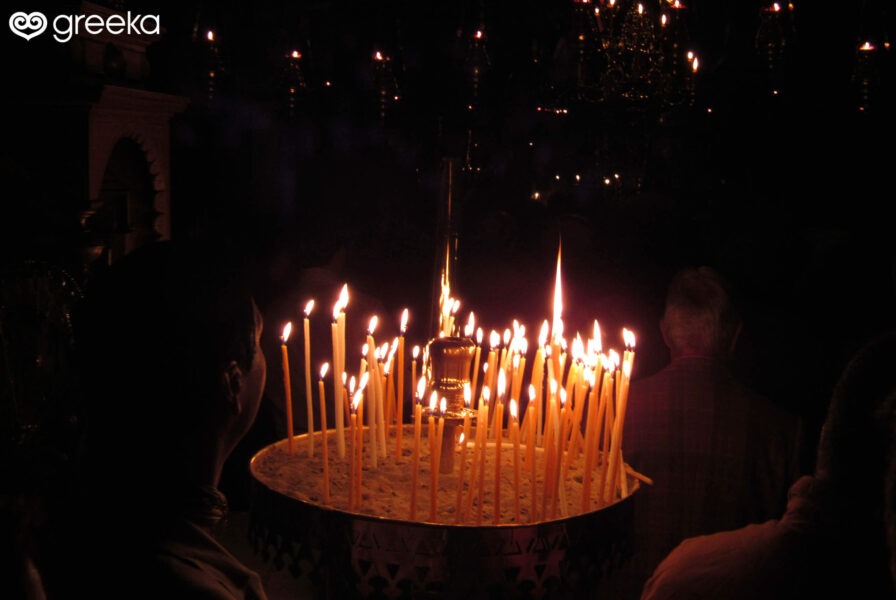
Easter in Greece has a very mystical atmosphere even for non-religious visitors.
It is important to remember that the Greek Orthodox Easter does not fall on the same date as the Catholic Easter. This is because the Orthodox Church uses the Julian calendar to calculate its official celebrations. The reason why the date changes every year is because it is determined by the Spring Equinox, which does not always fall on the same date.
More specifically, Easter is celebrated on the first full moon that follows the Spring Equinox and the Passover. It is always on a Sunday, between the dates 4/4-8/5, always after the Catholic Easter.
In most years, the two Easters occur only one week apart, although sometimes they may collide or be more weeks apart.
This year (2022), the Greek Orthodox Easter is on 24/4, one week after the Catholic Easter.
What are the Easter traditions in Greece?
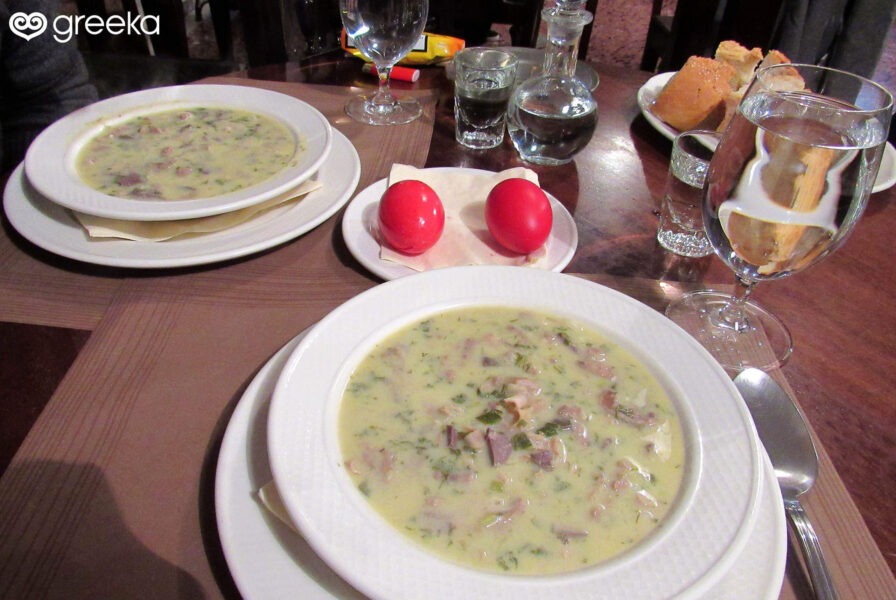
Magiritsa soup and red eggs are the main food served at the dinner table of Holy Saturday in Greece.
The traditions following Easter vary depending on the location. The celebratory atmosphere is said to last 40 days!
The most basic traditions, such as the ones of Easter eggs and candles can be found everywhere in Greece, from Athens and other big cities to islands and villages. At this time of the year, families gather and spend time together at home, preparing traditional foods, baking sweet mahlab bread and participating in local festivities and ceremonies.
Some places have their very own traditions that are unique and can in some cases seem absurd to an outsider! For instance, in Corfu, people drop clay pots from their balconies and in Chios, they fire self-made rocket missiles!
Holy Thursday: On this day, preparations for the Easter celebrations start. People paint the easter eggs with red dye, bake sweet “tsoureki” bread and the churches’ Epitaphs get decorated with violets and other flowers. The eggs symbolize rebirth, which is soon to be celebrated on Easter Sunday.
Good Friday: Good Friday is a day dedicated to mourning as a commemoration of the crucifixion and death of Jesus Christ on the cross. Most Christians follow a strict Lent on this day. In the evening, the Epitaph decorated with many flowers is carried around in the streets, followed by people holding candles singing a mourning psalm “Oh my sweet Spring”. The litany of the Epitaph is considered to be one of the most spiritual ceremonies that one can attend.
Holy Saturday: On the night of Holy Saturday, Christians gather at the local church to attend the Easter service. The Holy Light from Jerusalem travels all the way to Greece by plane. It will have reached every corner of Greece by midnight. At the exact moment the clock strikes 12, the priest sings “Christos Anesti (Christ has risen)” and distributes the Holy Light so that people can light their candles. Fireworks are fired and people bring the lit candles back home to bless their houses by drawing a cross with the candle’s flame above their doorway. A family dinner follows. The principal dish served is magiritsa, a delicious soup with lamb offal and vegetables.
Easter Sunday: Eastern Sunday is a day reserved for feasting and celebrations. All over the country, people gather, have barbecues, eat, drink, dance and celebrate to the point of exhaustion. The traditional meal for the day is lamb on the spit and people play the game of egg-cracking. The festivities are usually more intense in the villages of the Greek countryside.
Where to go for Greek Easter?
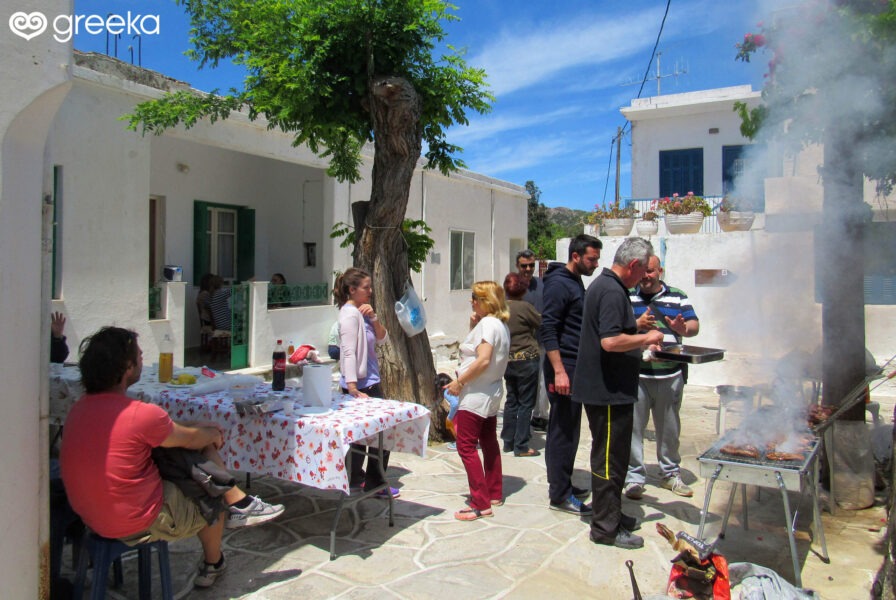
Easter Sunday everywhere in Greece is about barbeque gatherings, drinking and dancing!
If you’re visiting during the Easter Week, you can spend your holidays in any part of the country, although the countryside is highly recommended. The locals have their spring break and take a few days off, usually to visit villages or islands and enjoy the spring.
No matter where you choose to go, you will have the opportunity to participate in local traditions. Just make sure to do your research in advance so that you do not miss any important events!
Since this is not considered a peak season in terms of tourism, accommodation and flight tickets are usually available at a good price.
Below, you will find a few destinations worth visiting due to their special Easter festivities.
Santorini
In Santorini, Pyrgos village offers a unique sight to anyone who finds themselves on the island during Easter. When the Epitaph is carried through the picturesque alleys of Pyrgos, people light candles and tin cans to decorate the whole village. The atmosphere is truly magical and mystical!
Naxos
In Naxos, Apiranthos village is the place that steals the spotlight during Easter! More specifically, a huge bonfire is lit in the central alley of the village on Holy Saturday. The bells ring joyfully and are followed by singing and dancing. Light and noise are believed to scare the evil spirits away.
Corfu
One of the most famous and peculiar Easter customs takes place in Corfu Town. Here, the Resurrection is celebrated several hours earlier than usual (Saturday morning). People decorate their balconies with red flags and throw the Botides (large clay pots) onto the streets to break them. It is believed that this tradition dates back to the Venetian period, while others think that it is much older and related to ancient traditions.
Hydra
The picturesque island of Hydra in the Saronic Gulf is a lovely destination during Easter. On Good Friday, in the coastal settlement of Kaminia, the litany of the Epitaph continues in the sea creating a very dramatic atmosphere.


